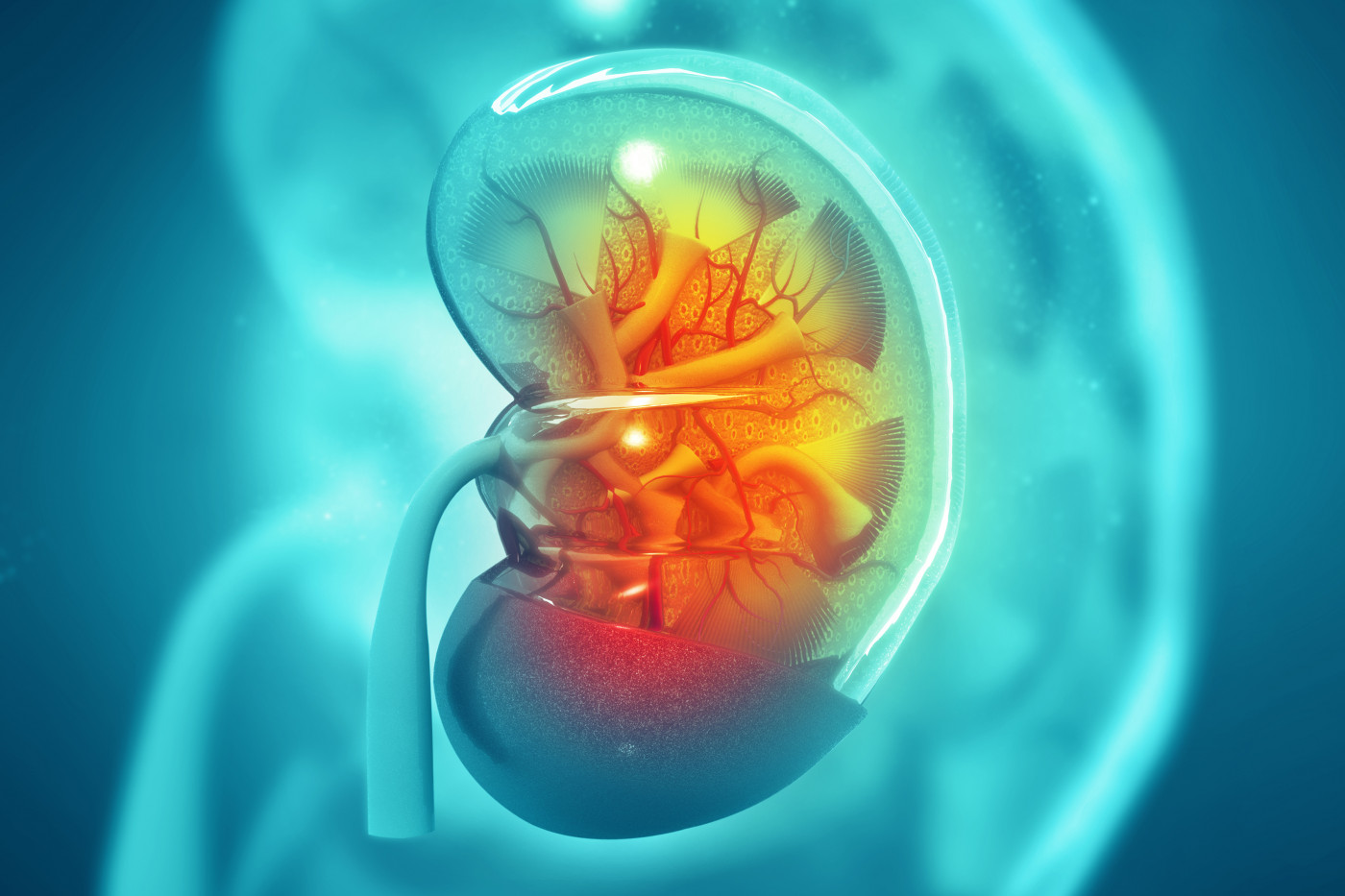Kidney Care in Fabry Disease

crystal light/Shutterstock
Kidney problems are common in people with Fabry disease. They are caused by the deposition of certain fatty molecules, known as globotriaosylceramide (Gb3 or GL-3), that accumulate inside cells due to a lack of the enzyme alpha-galactosidase A.
If not attended to, kidney problems can progress to kidney failure.
Here are some tips for caring for your kidneys if you have been diagnosed with Fabry disease.
Get a urine test done
Urine tests can help to determine the extent of kidney damage in a Fabry patient. These people usually excrete high levels of Gb3, albumin, and proteins in their urine.
A microscopic examination of a urine sample for the presence of mulberry cells (kidney cells with accumulated Gb3) can also be done to confirm kidney damage.
Begin ERT at the earliest
Enzyme replacement therapy (ERT), using treatments such as Fabrazyme, provides a substitute for the alpha-galactosidase A enzyme that Fabry disease patients are deficient in (lack in sufficient quantities). Regular administration of Fabrazyme can help clear the accumulated Gb3 from the kidneys and restore near-normal kidney function.
That being said, ERT cannot reverse kidney damage. It could be important to start ERT as early as possible for maximum benefit. Patients should consult with their doctor.
Ensure adequate nutrition and fluid intake
Proper nutrition and fluid intake are important for maintaining kidney health.
For kidney health, people are advised to drink at least 1.5 to 2 liters of water daily, and reduce salt intake to a maximum of 5 to 6 grams per day.
Reducing the amount of sugar and fat in the diet is also recommended.
Consult your doctor or dietitian for a personalized diet regimen that works for you.
Exercise regularly
Regular, moderate exercise can keep your blood pressure in check, lower your cholesterol, and improve muscle strength. All of these are helpful in preventing chronic kidney disease.
People with Fabry disease often experience fatigue, so make sure to consult a physiotherapist before starting any exercise program.
Avoid smoking
Smoking can lead to kidney failure, especially in Fabry disease patients who are predisposed to a high risk of kidney and heart diseases. Smoking hardens the blood vessels in the kidneys, and may also lead to a condition known as hypertensive nephrosclerosis (increased blood pressure in the kidneys).
Evaluate your options for dialysis and kidney transplant
If a nephrologist thinks your kidney function is seriously affected, you may be advised to begin dialysis to manually filter wastes from your blood. It is important not to miss any dialysis sessions, and to adhere strictly to the fluid intake requirements prescribed by the doctor.
In the event of kidney failure, a kidney transplant is often the treatment of choice for better long-term outcomes.
Both dialysis and kidney transplant may be combined with ERT to prevent Gb3 from accumulating in the kidneys and to improve survival rates.
Keep a tab on your heart’s health
The deposition of Gb3 in heart tissue puts Fabry disease patients at a higher risk of heart disease. Moreover, since kidney function and heart health are interdependent, with problems in one affecting the other, it is important to also consult a cardiologist to identify early any potential cardiac issues.
Last updated: Dec. 05, 2019
***
Fabry Disease News is strictly a news and information website about the disease. It does not provide medical advice, diagnosis, or treatment. This content is not intended to be a substitute for professional medical advice, diagnosis, or treatment. Always seek the advice of your physician or other qualified health provider with any questions you may have regarding a medical condition. Never disregard professional medical advice or delay in seeking it because of something you have read on this website.






